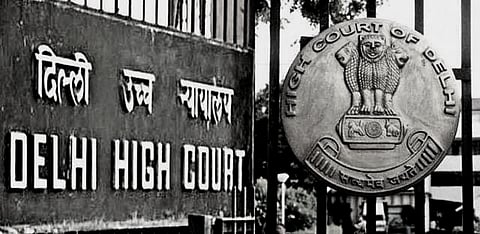

The petition contends that the practice of solitary confinement violates the fundamental rights of prisoners, and calls the practice "sadistic, barbaric and…inhuman".
—-
THE Delhi High Court on Tuesday issued notice to the Union government on a plea challenging the constitutional validity of criminal law provisions related to solitary confinement
A division bench of Chief Justice Satish Chandra Sharma and Justice Subramonium Prasad was in the process of hearing a public interest litigation (PIL) by advocate Harsh Vibhore Singhal against certain provisions of the Indian Penal Code, 1860 (IPC) and the Prisons Act, 1984 that allow the solitary confinement of prisoners.
The Union Ministries of Home Affairs, and Law and Justice have been asked to respond with an affidavit within six weeks. The high court will hear the case next on May 23.
The PIL calls the practice of solitary confinement as "sadistic, barbaric and an inhuman practice" and claims that though solitary confinement can only be given in the rarest of rare cases and with prior judicial approval, jail authorities routinely deploy it as punishment or otherwise to extract obedience "and for ingratiating their corrupt needs".
The petition contends that the practice of solitary confinement violates the fundamental rights of prisoners, which it says are not fully relinquished by the mere reason of imprisonment.
"It has been a historically and globally condemned practice. (It) cannot continue in the world's largest democracy now", says Smita Chakraburtty, founder of non-partisan research and advocacy organisation Prison Aid + Action Research, and an honorary prison commissioner appointed by the Rajasthan government.
Chakraburtty notes that even as the Supreme Court had ordered a stop on the practice in Sunil Batra versus Delhi Administration (1978), it still persists in part because the "prison manuals are outdated" and prison officials continue to impose such punishment under "a different form and nomenclature".
The PIL filed in the high court also contends that people in custody continue to be punished with solitary confinement, even for "minor prison infractions such as feigning sickness, squabbling over food or access to toilets, being indolent or talking-back with prison officers."
In Sunil Batra the Supreme Court had ruled that only a court, and not a prison official, has the power to order solitary confinement of a prisoner. The court had condemned the practice of solitary confinement, particularly in the context of persons sentenced to death, who are to be mandatorily placed "in a cell apart from all other prisoners", as per the Prisons Act.
"It is not a legal practice anymore. There are no formal solitary isolation cells, but there are segregation barracks," says Chakraburtty. During the pandemic, she notes, isolation barracks were created on the pretext of containing COVID-19, but were used for purposes of solitary confinement instead. Scholar, writer and human rights activist Dr. G.N. Saibaba, accused by the government of links with banned left-wing extremist organisations and convicted to life imprisonment by a session court in 2017, was put in a solitary cell, colloquially known as 'anda cell', after he tested positive for Covid-19 in February 2021.
She also highlighted another form of punishment imposed by prison officials called "pingla diet", where a prisoner is kept away from other inmates and given the minimum amount of food required to stay alive. The Prisons Act calls this a "penal diet" and lists it as one of the punishments that a Superintendent may impose on a prisoner.
As per the IPC, a court may order a convict to be kept in solitary confinement for up to three months if the offence under which that person has been convicted is punishable with rigorous imprisonment of at least one year. However, the period of such confinement can only extend to fourteen days at a time, with intervals of the same duration between periods of solitary confinement.
Additional caveats have been imposed under the Prisons Act, which stipulate that a person undergoing solitary confinement shall have the means to communicate with a prison officer at all times and shall be visited at least once per day by the medical officer or medical subordinate.
Under the Prisons Act, the superintendent of prison has the power to order "separate confinement" to prisoners as punishment for a period up to three months. Meanwhile, persons sentenced to death are to be mandatorily kept "in a cell apart from all other prisoners". This is another provision that is under challenge through the petition. This provision was read down by the Supreme Court in Sunil Batra, but was not struck down.
The PIL calls the practice inhumane as it "cuts off an inmate from sensory, visual and social society" and seeks the court's declaration that the above provisions violate the constitutional guarantees of equality, freedom of speech, and the right to life and personal liberty.
It also asks the court to order the constitution of an independent Prison Punishment Board in every state to approve on a case-to-case basis the solitary segregation of inmates.
In India, the management and administration of prisons fall exclusively in the domain of state governments, and are governed by the Prisons Act and the Prison Manuals of the respective state governments. The Union government can only issue non-binding guidelines, such as the Model Prison Manual, the latest of which was released in 2016. It is unclear how many states have incorporated the provisions of the 2016 manual, with or without amendments.
Drawing an analogy with the Apartheid era of South Africa, Chakraburtty said solitary confinement was used to enforce racial discrimination and as a tool during Apartheid to silence political prisoners.